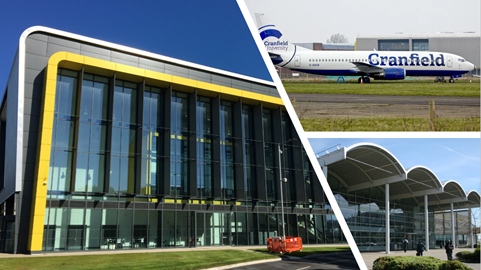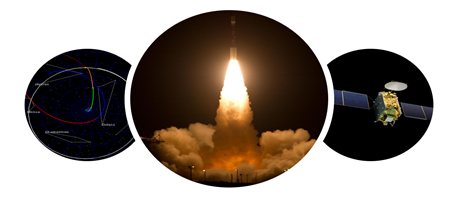My experience of Astronautics and Space Engineering MSc
30/03/2021

I have found that the Astronautics and Space Engineering MSc has given me all the relevant opportunities to study the things I have been passionate about for the last few years. It was the perfect course that allowed me to really investigate the specific topics I was interested in and specialise within this field.
Cranfield University itself is prestigious when it comes to research output, particularly related to the aerospace sector. This, as well as world-class facilities and its own airfield! I feel the core modules of this course provide the fundamental understanding for any aspiring space engineer, and the vast choice of electives allow you to specialise in any area you are interested in.
Personally, I enrolled in the Mathematics and Programming for Trajectory Design and Spacecraft Dynamics and Control modules, but there really are many possibilities to explore. Also, the standard that the taught modules are delivered is very refreshing, and every academic staff really is an expert in their field. Their support, guidance and perseverance throughout the Covid pandemic has been inspirational! It provides students with the necessary challenge and experience so that they are ready to enter the space industry and continue working on the future technical developments of space engineering.

Due to my academic modules and work experience, my main interests now are rocket propulsion and mission analysis. I am currently participating in the Group Design Project where we are designing a Debris Scavenger Spacecraft that will be implemented in the GEO region to help mitigate the increase in space debris. I am on the mission analysis team for that, and it’s great that I can take what I have learned from my part-time work at Asteria and apply it to my university work and vice versa. This is also the case in my space propulsion module, where I learned a lot of the fundamental principles of hybrid engines and the theory behind different systems of rocket which has really helped me out during my MSc.

Follow my postgraduate journey in my next blog where you will learn about my experience of the Astronautics and Space Engineering MSc.
Categories & Tags:
Leave a comment on this post:
You might also like…
Keren Tuv: My Cranfield experience studying Renewable Energy
Hello, my name is Keren, I am from London, UK, and I am studying Renewable Energy MSc. My journey to discovering Cranfield University began when I first decided to return to academia to pursue ...
3D Metal Manufacturing in space: A look into the future
David Rico Sierra, Research Fellow in Additive Manufacturing, was recently involved in an exciting project to manufacture parts using 3D printers in space. Here he reflects on his time working with Airbus in Toulouse… ...
A Legacy of Courage: From India to Britain, Three Generations Find Their Home
My story begins with my grandfather, who plucked up the courage to travel aboard at the age of 22 and start a new life in the UK. I don’t think he would have thought that ...
Cranfield to JLR: mastering mechatronics for a dream career
My name is Jerin Tom, and in 2023 I graduated from Cranfield with an MSc in Automotive Mechatronics. Originally from India, I've always been fascinated by the world of automobiles. Why Cranfield and the ...
Bringing the vision of advanced air mobility closer to reality
Experts at Cranfield University led by Professor Antonios Tsourdos, Head of the Autonomous and Cyber-Physical Systems Centre, are part of the Air Mobility Ecosystem Consortium (AMEC), which aims to demonstrate the commercial and operational ...
Using grey literature in your research: A short guide
As you research and write your thesis, you might come across, or be looking for, ‘grey literature’. This is quite simply material that is either unpublished, or published but not in a commercial form. Types ...






